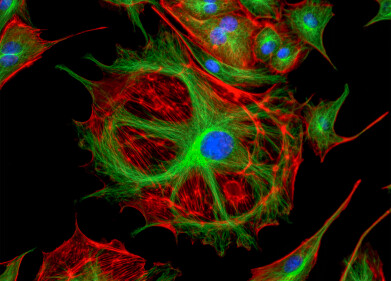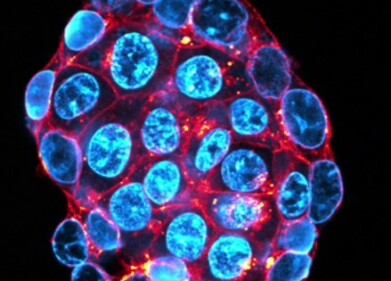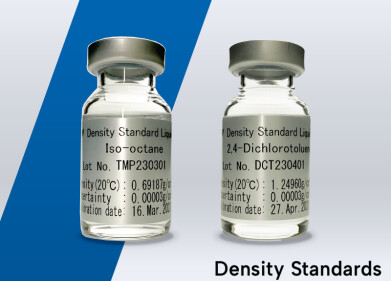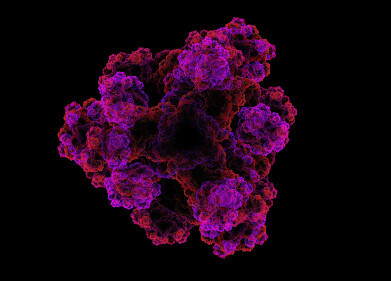-
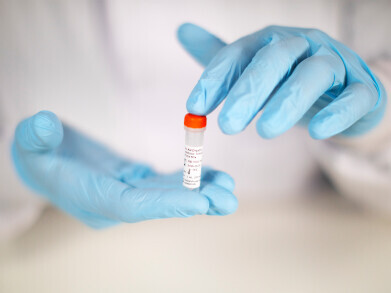 The Air-Dryable inhibitor-tolerant qPCR mix.
The Air-Dryable inhibitor-tolerant qPCR mix. -
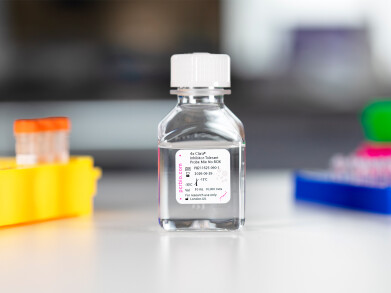 The Clara Inhibitor-Tolerant Probe Mix.
The Clara Inhibitor-Tolerant Probe Mix.
Reagents
PCR Biosystems introduces advanced inhibitor-tolerant qPCR mixes for superior detection on challenging samples
Jul 25 2024
PCR Biosystems, a leading developer of PCR reagents, have launched a range of advanced inhibitor-tolerant mixes for probe-based qPCR and 1-step RT-qPCR. Available in the Clara® and Air-Dryable product lines, these new mixes feature innovative broad-spectrum inhibitor-tolerant chemistry, guaranteeing reliable and highly sensitive DNA and RNA detection with even the most challenging of sample types. Now, researchers and diagnostic kit developers can be more confident than ever before in overcoming inhibition in their laboratory, environmental, and clinical sample testing.
Addressing PCR inhibition challenges
Optimal sample extraction techniques can often mitigate issues with inhibition in qPCR workflows and diagnostic processes. However, certain sample types - such as those containing blood, tissue, or cellular debris - pose persistent challenges due to their inhibitory compounds. Additionally, there is a growing trend towards conducting PCR on crude samples such as saliva and urine, which are inherently rich in PCR inhibitors. Fields such as clinical diagnostics, forensic testing, and environmental monitoring require PCR reagents capable of withstanding these inhibitors to provide reliable and actionable results.
Innovative solutions with Clara® and Air-Dryable mixes
To meet this challenge, the new Clara® Inhibitor-Tolerant Probe Mix and Probe 1-Step Mix combine the power of precise qPCR with an enhanced tolerance to a wide variety of chemical compounds. The concentrated 4x mixes contain all the essential components for successful probe-based qPCR or RT-qPCR, including hot start Taq DNA polymerase, dNTPs, magnesium, and for the 1-step mix, a modified version of UltraScript® Reverse Transcriptase with advanced RNase inhibitor. The single-tube format simplifies setup and requires only the addition of primers, probes and sample.
For developers aiming to eliminate the costs and logistics of cold-chain shipping and storage, the Air-Dryable Inhibitor-Tolerant Probe Mix and Probe 1-Step Mix provide a simple, fast and low-cost route to dried assay formats. An optimal blend of excipients ensures reliable drying without loss of activity and assays can be dried with a standard laboratory oven in as little as 80 minutes. Room-temperature stable qPCR assays capable of sensitive DNA and RNA detection on the most challenging sample types are now more accessible than ever.
Proven performance against diverse inhibitors
PCR Biosystems’ inhibitor-tolerant product range has been rigorously tested against a wide range of PCR inhibitors. These include common laboratory chemicals like SDS, guanidine, and ethanol, as well as biological sample inhibitors found in blood, saliva, and urine. The mixes have demonstrated robust performance in the presence of inhibitors such as hemin, hematin, haemoglobin, heparin, immunoglobulins, lactoferrin, sodium citrate, urea, humic acid, catechin, quercetin, tannic acid, cellulose, and chlorophyll.
Better accuracy with broader application
"Assays with better resistance to inhibitors mean improved diagnostic accuracy, simplified sample preparation, and a broader application of non-invasive sampling, particularly saliva-based testing," said Alex Wilson, co-founder of PCR Biosystems. "Launching these inhibitor-tolerant reagents marks our latest effort to empower researchers and kit developers with more dependable assays, enhancing the efficiency and accessibility of diagnostic testing. By lowering testing costs through reduced extraction steps and faster results, we can expand global access to gold-standard qPCR diagnostics.”
Learn more
PCR Biosystems will showcase these new products at ADLM 2024 in Chicago, USA, from 30 July to 1 August. Visit booth 4732 to meet with the team and learn more about their solutions for molecular research and diagnostics. Alternatively click here to schedule a meeting.
Digital Edition
Lab Asia 31.6 Dec 2024
December 2024
Chromatography Articles - Sustainable chromatography: Embracing software for greener methods Mass Spectrometry & Spectroscopy Articles - Solving industry challenges for phosphorus containi...
View all digital editions
Events
Jan 22 2025 Tokyo, Japan
Jan 22 2025 Birmingham, UK
Jan 25 2025 San Diego, CA, USA
Jan 27 2025 Dubai, UAE
Jan 29 2025 Tokyo, Japan
